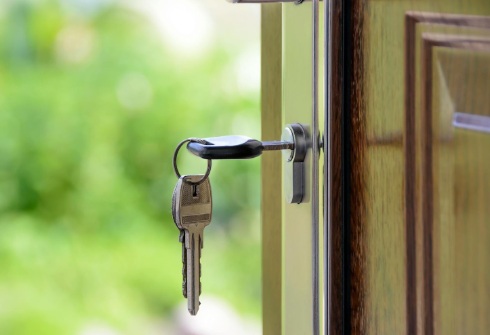The design and functionality of commercial doors play a crucial role in how a business operates, protects its premises, and welcomes customers. From high-traffic retail stores to industrial warehouses, the right door style enhances security, efficiency, accessibility, and even branding. With numerous materials, mechanisms, and configurations available, it’s important to choose a door  that aligns with the unique needs of your space.
that aligns with the unique needs of your space.
Whether you’re remodeling a facility or building a new one, understanding the advantages of different door styles will help you make more informed, cost-effective decisions that serve both your customers and your employees.
Automatic Sliding Doors for High-Traffic Entryways
Automatic sliding doors are a popular choice for hospitals, airports, retail stores, and hotels, anywhere that welcomes a large number of people daily. These doors provide hands-free entry, which improves hygiene, streamlines foot traffic, and complies with ADA (Americans with Disabilities Act) accessibility standards. They also reduce heating and cooling loss by staying open only as long as necessary.
However, sliding doors require regular maintenance, particularly in areas with heavy use. If you’re starting to hear unusual sounds or experience slow movement, it might be time to replace your automatic door motor to ensure safety and smooth operation. Upgrading the motor can also improve energy efficiency and extend the door’s overall lifespan.
Beyond standard sliding mechanisms, these doors are available in telescoping or curved designs, offering more architectural flexibility and visual appeal in lobbies or entrance halls.
Roll-Up and Overhead Doors for Industrial Spaces
Warehouses, auto shops, and other industrial environments typically benefit from roll-up or overhead doors. These heavy-duty doors are built for durability and space efficiency, rolling vertically into a compact coil or sliding along ceiling tracks. They are often made of steel or aluminum to resist weather, fire, and forced entry.
Insulated versions help regulate temperature, making them ideal for climate-controlled storage or areas with refrigeration needs. Some models come with high-speed motors to allow fast opening and closing, which minimizes downtime and energy loss during peak hours.
The ease of automation also enhances security, many systems can be integrated with access control or remote monitoring platforms to restrict unauthorized use.
Swinging Doors for Versatility and Simplicity

Swinging doors are among the most versatile and widely used in commercial settings. Available in single or double-panel formats, they function well in restaurants, office buildings, educational institutions, and public restrooms. These doors may be manually operated or automated, depending on the traffic needs and building requirements.
They offer excellent sound insulation and privacy and can be fitted with various access technologies, including keypads, RFID readers, or proximity sensors. For environments where noise reduction or restricted access is a priority, such as conference centers or examination rooms, swinging doors with solid cores and specialized seals are ideal.
Design options are abundant, ranging from wood veneer to stainless steel or laminated finishes that reflect a business’s aesthetic.
Glass Doors to Enhance Visibility and Branding
For businesses that prioritize aesthetics, transparency, or visual merchandising, glass doors make an excellent choice. Frameless or aluminum-framed glass doors create an open, modern look that works well in retail shops, corporate offices, and showrooms. They allow passersby to see into the space, encouraging foot traffic and reinforcing a sense of professionalism.
These doors are often paired with branding elements such as etched logos or custom tinting to reinforce identity. Tempered or laminated safety glass offers durability, while options with UV coatings help protect interior furnishings from sunlight damage.
Security shouldn’t be a concern, glass doors today can be reinforced with access control systems, motion sensors, and break-resistant materials to balance openness with safety.
Choosing the right commercial door isn’t just about aesthetics, it’s about function, safety, compliance, and the customer experience. Each type of door serves a specific purpose, and selecting the wrong one can lead to increased maintenance, inefficiencies, or safety concerns.
Whether you run a small boutique, a large warehouse, or a corporate headquarters, investing in the appropriate door systems can improve operational flow and protect your space. By assessing your unique traffic patterns, climate considerations, and security needs, you’ll ensure your doors do more than just open and close, they’ll actively contribute to your business’s success.
